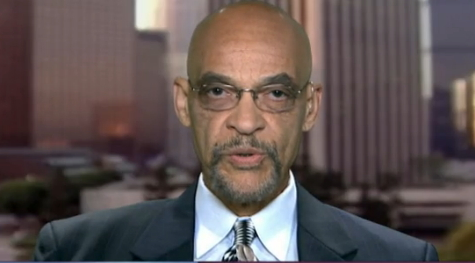Earl Ofari Hutchinson
A day after the massacre by Hamas of Israeli civilians and the taking of Israeli hostages, I asked this question on my Facebook Page: “What should Blacks say and do about the conflict?” Some respondents denounced the attacks by Hamas. Other denounced the continued blockade of Gaza as “inhumane” treatment by the Israelis of the Palestinians.
However, most of the respondents said in essence, “it’s not our fight.” Their reasoning was simple. Neither the Palestinians nor the Israelis were Black. It was a fight thousands of miles away and seemingly far removed from the fight for racial and economic justice in the U.S. Blacks, they contended, had their hands full trying to fight the battles against police abuse, the gaping racial disparities in health, education, and housing and the ongoing assault on voting rights, Blacks suffered in the U.S. The Black struggle then in the words of some had absolutely nothing to do with the Israeli-Palestinian battle.
There was also a subtle undercurrent of resentment. That this was a fight between two groups who many believed did nothing and cared nothing about the Black plight in the US. This was another motivating factor that prompted many to say Blacks should keep hands off the conflict there.
They are wrong. Start with dollars and cents. The U.S. government provides a minimum of three billion dollars annually to Israel in military and economic assistance. That figure is almost certainly the tip of the financial commitment of the U.S. government to Israel. Whether one considers the aid necessary and backs it, it doesn’t alter the fact that these are taxpayers’ dollars, African American tax dollars too. That gives Blacks a direct financial stake in just what and how their tax dollars are being used by a government that has been engaged in ongoing warfare whether in justified defense or aggression that has cost thousands of Israeli and Palestinian lives through the years.
Israel justifies its decades long blockade of the Gaza strip as a defensive measure to contain, suppress, and combat Palestinian terrorist attacks—real and potential-on Israel. The brutal reality is this purported defense measure has resulted in massive economic disruption, poverty, lack of food, water, and travel restrictions that have consigned millions of Palestinians to colossal poverty and denial of resources. This makes it a humanitarian crisis of staggering proportions.
This is the kind of issue that every major civil rights leader from Dr. Martin Luther King to Malcolm X in the past and civil rights groups today have always spoken out against. They have understood that oppression and injustice against a group anywhere is a fight that all should be engaged in. They also rightfully have denounced the terrorist attacks by Hamas and other Palestinian groups that have claimed thousands of Israeli lives.
In addition, they recognized the flip side of this. That antisemitism aimed at Jews has been a powerful and ongoing deadly issue of concern. It’s a well-established truism that if you scratch a racist you find underneath an antisemite and vice-versa. In the past decade antisemitism has been on the rise, and more often than not it is tied directly to hatred of Israel. Blacks must be mindful of the connection between antisemitism and racism and take just as vigorous a stand against the former as the latter.
There’s also the history of Jewish support and aid to the civil rights struggle. This is not a small point. Despite the criticism from some Blacks that this was self-serving and that many Jews have taken anti-Black racist positions on issues such as affirmative action, the fact is many Jews have supported every aspect of the Black struggle for empowerment.
There’s also the issue of how Blacks are treated in Israel. There have been major protests by Ethiopian Jews in Israel over discrimination in everything from housing to jobs to education in Israel. There was even a blunt threat by Israeli Prime Minister Netanyahu to deport en masse the protesters. This threat is a serious human and civil rights issue that American Blacks can and should relate to.
It’s simply not true that both Israeli and Palestinian activist groups have through the years not taken an active interest in the civil rights movement in the U.S. Their leaders have often spoken out against racial oppression and economic injustice that African Americans have faced. Many of their followers and representatives have been a visible presence at many civil rights actions through the years. They have recognized the inter connectedness between the struggle for racial justice and racial oppression be it in the Middle East or the U.S.
It’s hard to imagine anyone with half a heart and a full conscience from being moved, no outraged, by the mass murder of civilians in Israel and Gaza. Or the scenes of Palestinians en masse having to flee their homes under threat of military assault. Or the scenes of weeping Israeli family members mourning the deaths of Israeli noncombatants murdered in the Hamas attack.
It’s more than just a pithy saying to say and hopefully take action on the ancient line that an injustice to one is an injustice to all—no matter where it occurs. That more than ever applies to the Israeli-Palestinian conflict. It’s one that Blacks do have a stake in finding a just resolution too.
Earl Ofari Hutchinson is an author and political analyst. He also is the host of the weekly Earl Ofari Hutchinson Show at 9 a.m. Saturday on KPFK 90.7 FM Los Angeles and the Pacifica Network. He is the publisher of thehutchinsonreport.net

